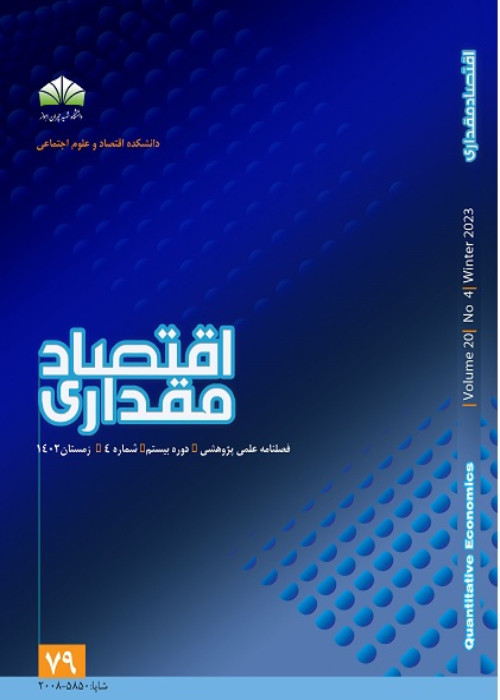The effect of sanctions on financial instability of Iranian banks
Financial institutions, especially the banking system, play a key role in the economic system; on the one hand, they provide economic growth and development and on the other hand, they may lead to the conditions of disorder and collapse in an economic system. Therefore, the existence of an efficient and stable banking system to prevent or reduce the likelihood of financial and consequently economic crisis is critical. For this reason, Western governments try to affect our economy through financial sanctions. This increases the business risk and costs of the banking system and economic activists, disrupting all international businesses and financial transactions. sanctions as an external shock can potentially have destabilizing effects on the financial system, especially on the banking system and consequently the economy of a country (in terms of revenue and expenditure). In contrast, some economists believe that sanctions do not affect Iran's banking system. In this case, the inefficiency of Iran's banking system regarding international regulations, as well as high credit risk at the international level, is pseudo-sanctioned, causing the unwillingness of foreign banks to cooperate with Iran. Due to this disagreement, the main purpose of this study is to investigate the effect of banking sanctions and their channels on the financial instability of Iran banks using the Z-score index.
To obtain the purposes of this research, a hypothesis has been formulated that bank sanctions have a significant negative effect on banks' financial stability. To test the hypothesis, the financial data relating to a sample of 18 Iranian banks are collected for the period 2007-2017. Dynamic panel data approach especially two-stage system-generalized method (SYS-GMM) is used. This can dynamically present the results with less error.Specifying research model The model is specified based on Kayaza et al. (2014) as follows: In this model i: Banks, t: time, α: intercept and b: the coefficients of the explanatory variables, banking stability index: (Z). Dummy Variable Sanctions: (SANC), Credit Risk: (CR), Liquidity Risk: (LR), Market Risk: (MR), Inefficiency: (INEFFI), Bank Size: (size), GDP per capita: (GDP), Inflation rate: (INF), current account (DCA).
Sanctions have a significant negative effect on the banking stability of Iran. In addition, inefficiency, credit risk, and liquidity have led to a decline in bank stability but the size of the bank and market risk have a significant positive effect on banking stability. Also, inflation and GDP have significant negative effects and the current account is significantly positively associated with banking stability.
The research hypothesis, that sanctions have a significant negative effect on the stability of Iranian banks, can not be rejected. It may be interpreted that banking sanctions lead to international invalidity and increase the credit risk, resulting in banking instability due to increasing financial costs through bypassing sanctions and finance at a higher cost. Therefore, the central bank is recommended to adopt policies to reinforce the banking system against sanctions, including the use of a SWIFT's alternative messenger system or new financial technologies, especially Blockchain and digital currencies with decentralized supervision.
- حق عضویت دریافتی صرف حمایت از نشریات عضو و نگهداری، تکمیل و توسعه مگیران میشود.
- پرداخت حق اشتراک و دانلود مقالات اجازه بازنشر آن در سایر رسانههای چاپی و دیجیتال را به کاربر نمیدهد.



